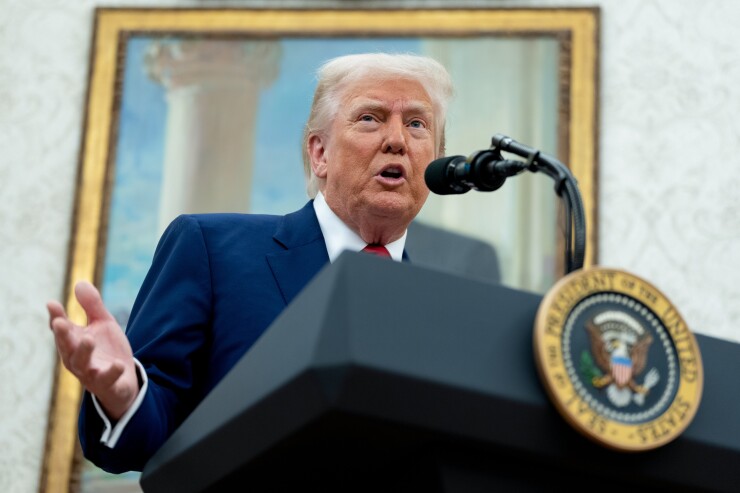Trump's proposed One Big Beautiful Bill (OBBB) has been passed in the House and currently awaits consideration by the Senate, but if passed into law, it could signal
The bill outlines tax cuts and deduction increases for individuals and businesses, reductions in federal spending, cost-sharing obligations on the part of states and alterations to
The goal of the bill is to stimulate the economy and reduce government spending, which could trickle down to employers and employees alike. For example, some of the proposals in the bill would potentially increase take-home pay: The bill calls for untaxed tips, overtime and car loan interest, as well as an increase in the child tax credit and other
Read more:
Benefit managers can use the bill as a catalyst for educating employees on financial wellness benefits, no matter how they may eventually be impacted, says Sid Pailla, CEO of emergency savings platform Sunny Day Fund.
"The bill does a lot of good things to provide more cash to individuals and opens up new doors to the employer, but ultimately the big question is, is it enough?" he says. "This is just the start of a conversation."
Untaxed income
For employees eligible for untaxed income and tax breaks, benefit managers have an opportunity to think, "Where will those wages go?" Pailla says. For example, Pailla explains that an individual who's earning $20 an hour with an overtime rate of $30 an hour would be able to deduct overtime wages.
Benefits like emergency savings accounts, HSA or FSA accounts, 529s and 401(k) could all support these financial windfalls, and help employees make smarter decisions for the future. The Sunny Day Fund, for example, partners with employers to get workers automatically enrolled in contributions to FDIC-insured savings accounts, helps them set financial goals and offers rewards, such as employer contributions, when those goals are met.
"How is the employer going to work with the individual to make sure these wages are going to the right spot?" Pailla says. "If I'm a benefits leader, or a CEO or a CFO, this is the perfect commitment to make sure people are now being told, 'Hey, now that you're getting [a pay] bump, you can put that in your 401(k) and get a match from us, or you can put that into your Sunny Day Fund and get another $50 or $100 from us.'"
Read more:
Managing state-specific guidelines
At the same time, cuts to government benefits including the Affordable Care Act, Medicaid and SNAP could deny millions of low income workers access to vital programs, especially if increased wages make them ineligible.
If federal benefits are cut if and when the One Big Beautiful Bill becomes law, states will need to take on more financial responsibility. This leaves benefit managers with a dispersed workforce — or who may have one in the future — left to understand how each state's guidelines are affected, and the impact this has on their employees living there. Finding a vetted third party vendor like Sunny Day Fund that understands state-by-state guidelines can make setting up financial wellness options infinitely easier, and allows employers to approach planning and decisions with growth in mind, he says.
In addition to financial wellness offerings, benefit managers can review healthcare benefit options with employees and suggest ways to use extra income for health and wellness areas such as preventative care, which Pailla points out can contribute to healthcare cost containment.
Read more:
Data from Sunny Day Fund shows that when people save even a small amount, their financial health score improves. Providing benefits that help people do this is a great way to increase retention and improve people's well-being, and the OBBB can be a catalyst for doubling down on these within the workplace, Pailla says.
"All this points to the employer playing a bigger role in terms of providing decision tools and better information back to employees," he says.






